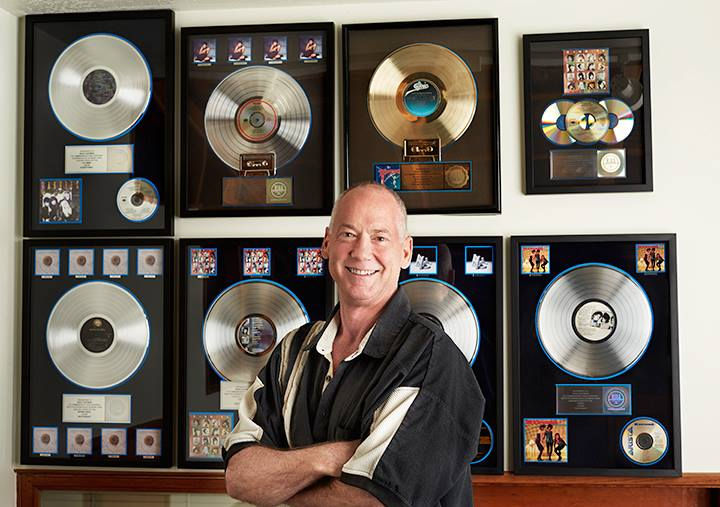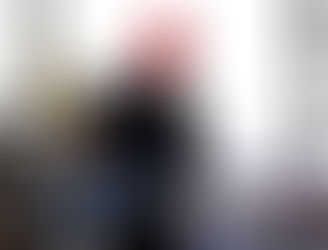WHAT IS THE MAIN DIFFERENCE BETWEEN OPERA AND MODERN STYLES OF SINGING? - THE MICROPHONE
- Brad Chapman
- Aug 23, 2017
- 6 min read

What is the main difference between OPERA and modern styles of singing? - the MICROPHONE
Introduction to Opera as “Good”/ Modern Genres as “Bad” and Vice-versa Debate:
Some voice teachers and their students fight over whether they should be opera singers or not; whether somehow all singers should embrace opera and that opera singers are better than singers that are not operatic. Some might say that opera singers are the only true singers and that opera singers think that the modern style singers have incorrect technique. In truth, operatic and modern style singing are two very different art forms.
There is a major change that took place in approximately 1877 that changed everything in regard to singing and technique. Singers would all still be singing opera, if the microphone and its amplification had not been invented. The operatic singers develop the ability to project higher levels of DB (decibels) and master a very efficient tone to resonate in the architecture of the opera hall. Without the microphone, it would not be possible to hear a modern singer’s voice. This is because modern singers’ techniques work well with microphones, but not in opera halls.
The good news is that singers can now can choose to be operatic or modern style due to the advent of the microphone. Because of the microphone, the rules of vocal technique have changed. And therefore, the modern singer does not use operatic techniques. Microphones were not developed for opera (and the opera singer with the operatic voice loses the beauty of their voice when using a microphone). Opera is a valuable art that works is in the opera hall.
Modern singers let the microphone do most projecting for them. Now, does that mean that modern singers don't need to sing well in order to be heard? No, it doesn't mean that, but it does create an “apples and oranges” situation where, let's say that opera is “apples” and they started hundreds of years ago developing these booming voices; and then the microphone came along and created the “oranges”. So, both are fruits; just as both style singers sing from the same wind pipes; both have the same principles. The difference is that modern singers don't use the operatic intensity (and don't want to because they would sound laughable).
Singers using microphones have to change most of the techniques developed from the opera world. In effect, modern singers are singing in the audiences’ ear. If you’ve ever heard how loud a fully developed opera singer can be, you’d never want that man or woman anywhere near your ear. The operatic voice sounds much better when it is carrying throughout a large hall.
Philosophy – Good/Bad:
So, is opera bad? No, absolutely not. Is pop music, folk music, or many kinds of music where the singers are developed with the microphone wrong? No, it's a different environment. What will help all of this is to understand the difference. The fact is that we now also have “classical” singers/ “classical pop” singers as a new vocal art form which does use a microphone. Their style, however, is still very legato (meaning with connected melody (like operatic singers)). Legato is a vocal technique used for voice stamina. However, most of our modern sounds of today are much more like drums, much more rhythmic. People want to dance to the modern singers’ voices.
How Modern Singers Work:
Modern rhythmic singers trust that the microphone and PA (public announcement) system is doing everything to enhance their good technique, which provides stamina and allows for continuous gigs on the road. They can even express emotions that opera people can't. This is because if the operatic singers try to sing the soft and intimate styles (as modern singers do on a microphone); then no one would be able hear them. This is similar to what the operatic singers say about modern singers not being able to be heard in an opera hall. These are both true statements. (It’s ok to be operatic and its ok to be hard-rock, etc., there doesn't need to be any conflict.)
How Modern Singers Use Microphones:
In addition to mics, headphones have created even a new dynamic because, it’s the first time that the singers really have been able to hear a closer audio image of what they sound like to other people. This is because the headphones send the sound directly to the singer’s ears. For this reason, the modern singer needs to train with headphones and a mic in order to perform live and in the studio at their best. If a modern singer is taught opera, then the modern singer sounds very bad on a mic and in their headphones.
This is a serious situation because the modern singer has put in years of training with a voice teacher, who in most cases is an opera teacher. In this situation, the modern singer can’t apply what they've learned to the microphone. Their training serves as a negative since there is too much sound pressure level for the microphone. This results in an overdramatic performance from the singer.
Example of the Difference between an Opera Singer and a Modern Singer:
For example, as an analogy, imagine the amount of makeup that a stage performer wears being hundreds of feet away from their audience. When you get close to the performer with a video camera, they look like a clown. If an opera singer tries to sing with a band, or go into the recording studio and work with headphones and a mic; it's all for not, because their style works for opera; but does not work for microphones (just as stage make up does not work for television or movies).
Brad Chapman’s Personal Preference:
Personally I love microphones for the following reason. Even though operatic singers are very skilled with technique, they too can blow out their voices. On the flip-side for modern singers, if a microphone is used really well (especially with in-ear monitors); the singer has much more stamina; and a much lower chance of losing their voice. Never the less, the modern singer still has to use good organic, natural technique that expresses their emotions; and doesn't compromise the projection of the singer’s emotions to the audience, whether live or recorded. To keep this all in perspective, generally speaking; opera teachers should not be teaching pop singers, rock singers, folk singers, or reggae singers, etc. If you hear an opera teacher say that their techniques can be used with any style or genre', be very wary (especially if the teacher sounds classical or operatic when they demonstrate their technique).
It's rare to find a voice teacher who understands vocal technique in the electronic world. Most voice teachers are from an opera background. Therefore, sometimes you have good advice that can be used in part by a modern singer. I know this because, when I trained under the number one technique teacher in the world, I had to modify many of the operatic techniques that I was trained to adopt because these techniques did not work on a microphone.
I had started singing with a microphone when I was 12. Therefore, as soon as, my voice teacher started to develop my vocal instrument for big operatic projection (at the age of 28); it started to ruin my recording and live performance career. At that point, I had to stop working with my voice teacher and created my own technique for the mic.
Audience and Producer Point of View:
Because the audience is so intimate with the singer on a microphone, they can feel the lack of intensity in the singer’s feel. Therefore, one must be very careful to promote the technique of singing naturally (the Bel Canto) to the way people are going to hear it in a recording studio. I recommend that singers use headphones and microphones, as often as possible. Producers that I’ve met all over the world are surprised that singers are not using headphones when practicing at home. Their surprise is due to the fact that if headphones are not used while practicing on a regular basis, it causes a lot of problems when they start recording the singer’s voice in the studio. So, definitely wear headphones and use a mic to prepare yourself for the recording studio.
Brad Chapman
(I coach singers to use microphones only. Contact me for the correct style of training for all styles of singing that use microphones.
































Comments